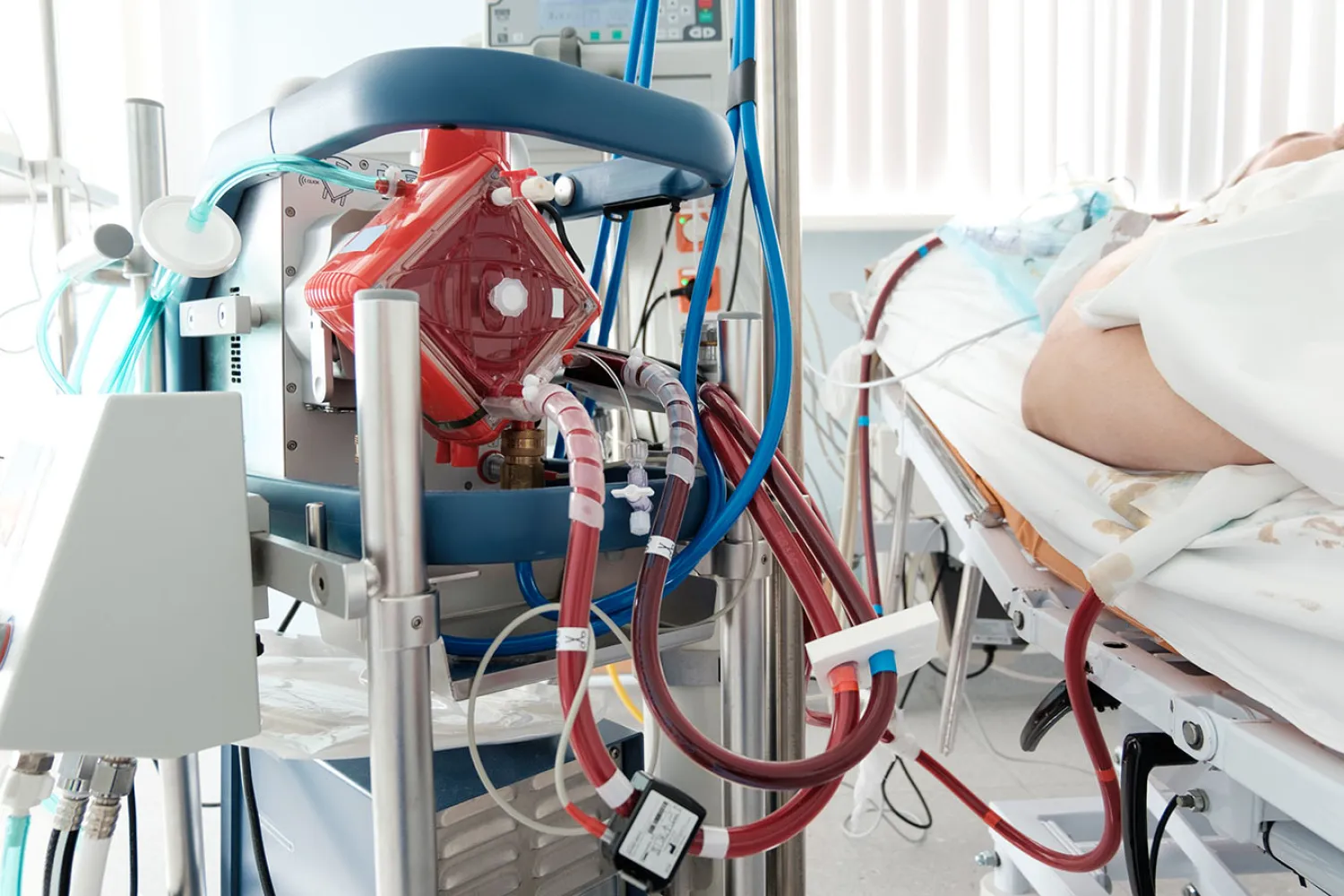The Saudi Ministry of Health’s utilization of extracorporeal membrane oxygenation (EMCO) has been successful. The machine has allowed for an increase in the recovery rate of patients suffering from acute respiratory failure caused by the new coronavirus.
It performs the role of the heart and lungs, supporting other organs until they recover and regain their functions. The treatment has been successful in treating nearly 32 patients so far. The machine was used to help patients awaiting open-heart surgery or a lung transplant and has only recently started to be used to treat patients suffering from acute cases of the COVID-19.
It is not a long term treatment; rather, it can only replace the lungs and heart temporarily, while its utilization for long periods leads to an array of complications. It works by tubing blood from the central veins, either in the neck or thigh vessels. It then transfers the blood outside of the body to an artificial lung that warms blood so that it is the same temperature as the blood in the body. It supplies the blood with oxygen while removing carbon dioxide before it pumps it back into it to the body.
The specialized medical team uses EMCO to treat cases of advanced respiratory failure and acute cardiac respiratory failure, as it gives the heart and lungs a chance to recover.
Recent studies have highlighted technology’s increasingly prominent role in treating patients with severe pneumonia caused by both infectious or non-infectious diseases.
Concerning the virus’ spread in the kingdom, the Saudi Ministry of Health announced that the number of recoveries has reached 264,487 after 1528 new recoveries were registered on Saturday. Also, 1,413 were recorded in the last twenty-four hours.









